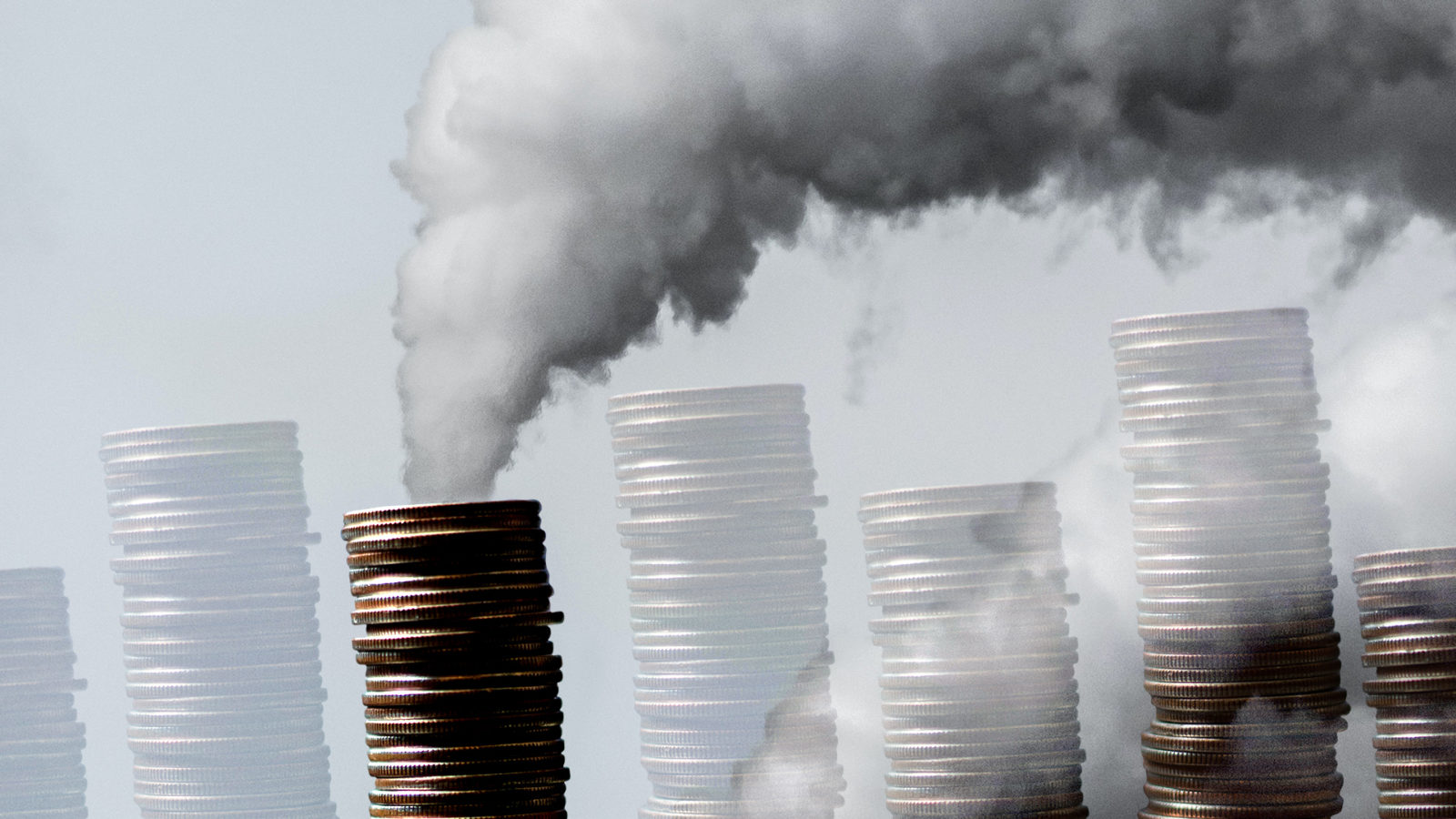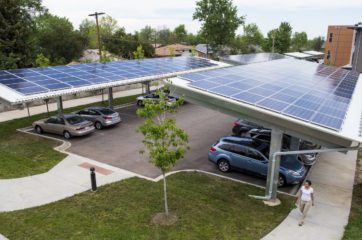When Joe Biden won the 2020 Presidential election, climate advocates across the country felt a renewed sense of hope. Campaigning on a commitment to refocus the United States on addressing the climate crisis after four years of rollbacks, Joe Biden finally gave us something to be excited about. One of his first actions upon taking office was rejoining the Paris Climate Agreement, but the wave of transformative climate action has since fizzled out. That is, until this July, when Democrats in Congress rolled out a $3.5 trillion budget resolution that could radically address the climate crisis.
The budget resolution comes on the heels of Biden’s climate proposals, which were cut from the bipartisan infrastructure deal during negotiations with Senate Republicans. The new proposal enacts tax incentives for clean energy and electric vehicles and includes significant investments in the transition away from fossil fuels. Major pieces of Biden’s American Families Plan are embedded in the proposal including Universal Pre-K, an expansion of Medicare and Affordable Care Act subsidies, and tuition free community college.
Democrats in the Senate are pushing this legislation through using the budget reconciliation process. Created by the Congressional Budget Act of 1974, budget reconciliation allows for an expedited consideration of tax, spending, and debt legislation. Free from the constraints of the filibuster, the process provides an opportunity for passing budget and tax measures that might not have received bipartisan support. Given the nature of this legislative process, now is the time to pass a price on carbon pollution.
Pricing carbon pollution would impose the social and environmental cost of planet-warming gases on coal, natural gas, and petroleum, as well as on other carbon-emitting products. With prices ranging from $5 to more than $150 for every ton of carbon (CO2e) emitted into the atmosphere, pollution pricing can help incentivize consumers and companies to make efforts towards decarbonization through actions such as switching to clean energy.
Unfortunately for many hopeful climate advocates, this climate solution died last month, but there is still hope. Citizens Climate Lobby, as well as many climate advocacy organizations, are calling on all who can to contact their U.S. Senator and ask for a price on pollution.
Find and contact your Senator here.
Critical Considerations
A subset of policymakers have been trying to pass carbon pollution pricing at the federal level for decades, but the policy — failing in 1993, 2010, and again in 2011 — has not seen any success. From a political standpoint, many legislators won’t touch carbon pollution pricing with a ten-foot pole, let alone an explicit carbon pollution price, for the fear that they will be seen in favor of taxation. Conversely, some supporters only claim to support carbon pollution pricing because they know it’s highly unlikely to pass.
The same goes for major emitters, like ExxonMobil, that have supported a carbon tax because of this belief, as exposed by Greenpeace’s investigative journalism branch, Unearthed, earlier this year. Two senior lobbyists with ExxonMobil worked to undermine Biden’s failed climate provisions in the infrastructure bill, saying that the company backs a carbon pollution price as “an easy talking point” and “advocacy tool,” knowing that Republican lawmakers will never let it happen. Further insight into why this policy has been unsuccessful suggests that the upfront energy costs imposed by the system are too high and do not provide an immediate alternative energy source. Though this high upfront cost is only temporary, in a country with a deep aversion to taxation, many politicians find it difficult to reconcile despite the benefits carbon pollution pricing could have on communities and the environment.
Some environmental justice groups have also pushed back against pricing carbon pollution. They argue that, while a well-structured carbon pollution price would protect people making under $400k annually from a tax increase by rebating benefits back to them, it would eventually catch up to those making under the threshold. Further, there are fears that while a carbon pollution price will greatly reduce emissions globally, it does little to reduce the pollution and environmental health burden in marginalized frontline communities.
These concerns make it clear that pricing carbon pollution is not an end all policy. It must be methodically designed and include multiple elements that combat the climate crisis and support vulnerable communities, such as those outlined in the Green New Deal — a climate policy proposal that couples carbon pollution pricing with a plethora of vital economic and climate actions. If pricing carbon pollution is included in the budget reconciliation process, money collected from fossil fuel companies should be given to Americans as a dividend to spend with no restrictions, protecting middle and low-income families who may not be able to afford the transition away from fossil fuels.
With 68% of the American public in support of making fossil fuel companies pay for their carbon pollution, and 77% supporting the regulation of CO2 as a pollutant, the relative success of carbon pollution pricing in other countries begs the question – why hasn’t this policy passed in the United States? There is no simple answer, but political scientists often point to the fact that countries where a carbon pollution price has been successful have no major fossil-fuel industry, excluding Canada. A collection of 3,589 economists in the Climate Leadership Council have called carbon pollution pricing “the most cost-effective lever to reduce carbon emissions.” Finland passed the world’s first pollution price in 1990, and the European Union followed suit just three years later in 1993. The current EU pollution price now sits at €50 ($59.93) per ton. Projections by Citizens Climate Lobby estimate that a pollution price in the U.S. could save Americans $800 billion each year in economic losses. To match the potential impact of a carbon tax, multiple regulations would be needed at an additional cost of billions of dollars per year. Without a price on pollution, by 2050, the American economy could potentially shrink up to 7% due to the increasing costs of climate change.
While carbon pollution pricing has a complicated legacy, it remains an essential piece of the efforts to combat climate change. There are many more steps necessary to ensure all communities are protected from the threat of climate change, and carbon pollution pricing is not a silver bullet. It is, however, a good place to start and can generate funds to support other initiatives aimed at reducing planet-warming emissions. Designed with intention and insights from past mistakes, carbon pollution pricing can mitigate climate change while directly benefiting communities both economically and environmentally.
This September, the details of the new climate bill will be discussed and debated during the budget reconciliation process, which gives climate advocates time to ensure elected officials know the public support for carbon pollution pricing. No matter the political leanings of your state of residence, you can call on your Senator to support this critical piece of climate legislation. The window to address the climate crisis is closing, but through the budget reconciliation process we have a chance to pass one of the most effective climate policies to date.
Follow this link to identify your State Senator and access all necessary contact information!









